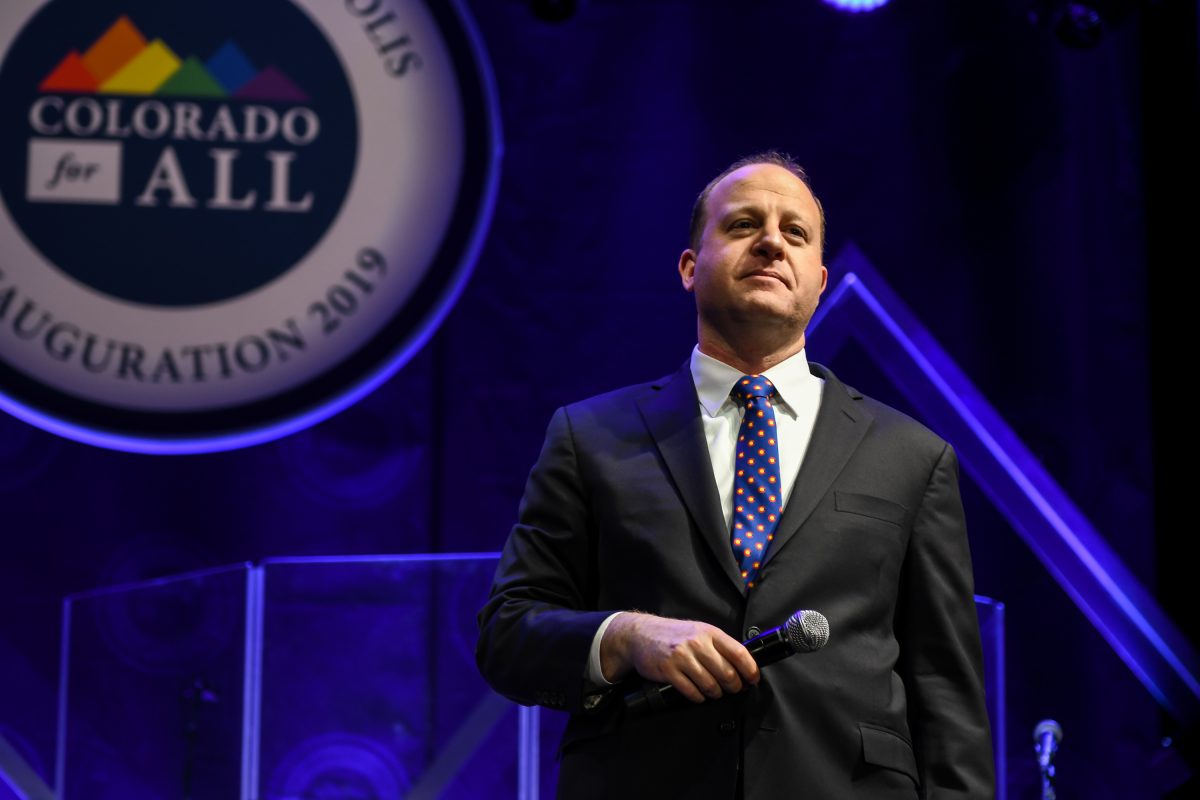10th Circuit Court Rules for Equality
On June 25, the Denver-based 10th Circuit U.S. Court of Appeals struck down Utah’s same-sex marriage ban, a landmark decision that could pave the way for gay couples in Colorado.
It started off as a typical day in the office. Jodi Martin was sitting at her desk when suddenly somebody started banging on the office wall. “It’s out!” a voice yelled from the other side.
It was Jodi’s partner, Jenny, yelling out the 10th Circuit ruling which struck down Utah’s gay marriage ban. “I was very excited,” says Jenny Martin. “I had been watching the 10th Circuit opinion page, and I hit refresh and saw the [Utah] case name, and my stomach just … I just got butterflies.” Their daughter, 13-year-old Morgan Martin, was in the building as well. “I ran to where she was,” says Jenny, “and yelled: the 10th Circuit ruled! We won!”
Jodi and Jenny, who have been together eight years, have been following the Utah case closely. Although they have a civil union, the protections Colorado affords is not enough — especially for a couple raising a child.
Once the Martin family leaves the state of Colorado, they lose their rights as a family. They are hopeful the Utah case will change that.
In a 108-page decision, the three-judge panel at the 10th Circuit handed down the 2-1 ruling which outlined that restricting marriage to opposite-sex couples violates equal protection rights.
Writing for the majority opinion, Judge Carlos F. Lucero scribed:
“We hold that the 14 Amendment protects the fundamental right to marry, establish a family, raise children, and enjoy the full protection of a state’s marital laws. A state may not deny the issuance of a marriage license to two persons, or refuse to recognize their marriage, based solely upon the sex of the persons in the marriage union.”
The 10th Circuit Appellate Court is the highest court to rule on gay marriage since the U.S. Supreme Court ruled on Windsor last year, striking down a section of the Defense of Marriage Act. There are six states which fall under the 10th Circuit’s jurisdiction, including Colorado. And though the ruling would apply to all six states, the court immediately stayed its ruling, preventing the issuance of any valid same-sex marriage licenses in states with marriage amendment bans.
Judge Lucero knocked down Utah’s defense that same-sex marriage will somehow adversely affect opposite-sex marriages. “We cannot imagine a scenario under which recognizing same-sex marriages would affect the decision of a member of an opposite-sex couple to have a child, to marry or stay married to a partner, or to make personal sacrifices for a child.”
The 10th Circuit also criticized Utah’s argument which posits that because same-sex couples cannot procreate naturally, they should be denied the rights afforded to married couples. Writes Judge Lucero:
“… each of [Utah’s] justifications rests fundamentally on a sleight of hand in which same-sex marriage is used as a proxy for a different characteristic shared by both same-sex and some opposite-sex couples.”
Nancy Leong, associate professor at the University of Denver’s Sturm College of Law, emphasizes the significance of this momentous ruling. “This is a very comprehensive, thoroughly researched, and well supported majority opinion. Clearly what Judge Lucero is doing here is talking to the U.S. Supreme Court.”
Though it is likely Utah will appeal to the Supreme Court, a hearing is not certain. The Court could deny Utah’s request and allow the 10th Circuit’s ruling to stand, or the Court could hold Utah’s case until other federal courts have ruled on similar cases. There are currently marriage lawsuits in six different federal circuit courts throughout the nation, including another case before the 10th Circuit regarding Oklahoma’s same-sex marriage ban. There is also a possibility the lawsuit will stay in Denver, as Utah can ask the 10th Circuit for a rehearing with the same three-judge panel or a rehearing before all the judges within the 10th Circuit.
However the case moves forward, it is likely Utah will pull arguments from the dissenting opinion on the panel, Judge Paul J. Kelly. He is the first federal judge since United States v. Windsor to rule in favor of a same-sex marriage amendment ban.
But Leong explains that in his dissent, Judge Kelly does not defend Utah’s gay-marriage ban itself, but rather outlines the importance of separation of powers. “Judge Kelly’s argument,” explains Leong, “is that states deserve deference in deciding what laws to pass, how to justify those laws, and when to defend those laws. What he is getting at is that state legislatures have a certain role, and the courts have a certain role. As members of the judiciary, we need to stay in our role, and part of that role involves deference to state legislators.”
Judge Kelly was very critical of his two colleagues who voted to strike down Utah’s ban. “We should resist the temptation to become philosopher kings imposing our views under the guise of constitutional interpretation of the 14th Amendment,” Judge Kelly writes.
Since Windsor, there have been 35 consecutive court decisions upholding the right for gay and lesbian couples to marry. Colorado’s largest LGBT lobby organization, One Colorado, held a celebratory rally in Civic Center Park on the night of the 10th Circuit’s ruling. “We’re gathered here tonight to celebrate our success,” said Dave Montez, executive director of One Colorado, “and send a clear message that Colorado is ready for the freedom to marry. There can be no doubt that marriage equality is inevitable in the not-too-distant future here in Colorado and all across the county.”
In his ruling, Judge Lucero echoed what he also sees as inevitable progress, delineating the large paradigm shift that has occurred regarding LGBT rights. Judge Lucero writes: “A generation ago, the declaration by gay and lesbian couples of what may have been in their hearts would have had to remain unspoken. Not until contemporary times have laws stigmatizing or even criminalizing gay men and women been felled, allowing their relationships to surface to an open society. As the district court eloquently explained, ‘It is not the Constitution that has changed, but the knowledge of what it means to be gay or lesbian.’”
What's Your Reaction?
Greetings. I’m Mike. People call me Mike. I’m just a gay guy trying to be creative before I’m kicked off this spinning, planet-sized spaceship hurdling through the void of space. Writing and photography are the creative outlets I spill my brain into when mental monsters start clawing at the back of my eyes. I only hope these articles provide readers with a few insights I’ve carefully gathered in cupped hands, cracked hands that have dueled for decades with these nebulous shadows that haunt so many lives. Plus, writing is a great way to pass the time on this planet-sized spaceship hurdling through the void of space.










